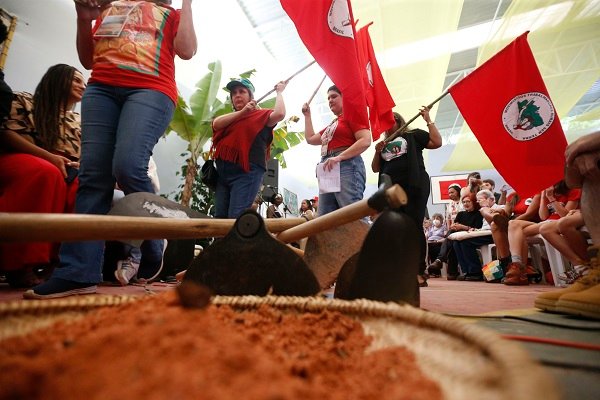During April, an important month for the Landless Workers Movement (MST), the entity was very active and made several land invasions. On Monday (29/04), the Landless Rural Workers Movement (MST) invaded the headquarters of the National Institute of Colonization and Agrarian Reform (Incra) in Alagoas. In addition to that, 15 other states had incidents reported.
This Content Is Only For Subscribers
To unlock this content, subscribe to INTERLIRA Reports.
INCRA Invasion
In protest of the appointment of Junior Rodrigues do Nascimento as the new superintendent of INCRA in Alagoas, MST members invaded the institution’s main facility. Before the invasion, Nascimento worked at Naturagro, an entity based in Maceió that represents beneficiaries of the national agrarian reform program. The MST claims that his appointment represents the continuity of people connected to Agribusiness.
Livestock Fair
The opening of Expozebu, the main Brazilian livestock farmers event in Uberaba, Minas Gerais, was marked by strong criticism from farmers and politicians regarding land invasions during April, an action called the “Red April movement”. During the exhibition organized by the Brazilian Association of Zebu Breeders (ABCZ), which was attended by deputies, senators, governors, association leaders, and livestock farmers, as well as ministers Carlos Fávaro (Agriculture) and Alexandre Silveira (Mines and Energy), and the president of the Chamber, Arthur Lira (PP-AL), there was a demand for the Federal Government to create measures to prevent invasions.
Red April
Since the beginning of April, the MST has occupied at least 35 plots of land in 15 states: Bahia, Ceará, Federal District, Espírito Santo, Goiás, Pará, Paraíba, Paraná, Pernambuco, Piauí, Rio de Janeiro, Rio Grande do South, Rio Grande do Norte, São Paulo and Sergipe. In addition to putting pressure on the Palácio do Planalto for agility in agrarian reform. Red April marks the anniversary of the Eldorado do Carajás massacre when 19 landless people were murdered in 1996.
Analysis:
The clash between big farmers and landless people highlights the different perspectives concerning land use and agrarian policy in Brazil. While big farmers defend private property and seek to maintain their influence and control over land, the MST fights for a more equitable distribution of land and policies that favor small farmers and rural workers. This polarization reflects broader issues about land concentration and inequality in access to land in Brazil, issues that are still far from being resolved and that generate constant conflicts in the countryside.
Source: Folha de São Paulo; O Globo [1], [2].




